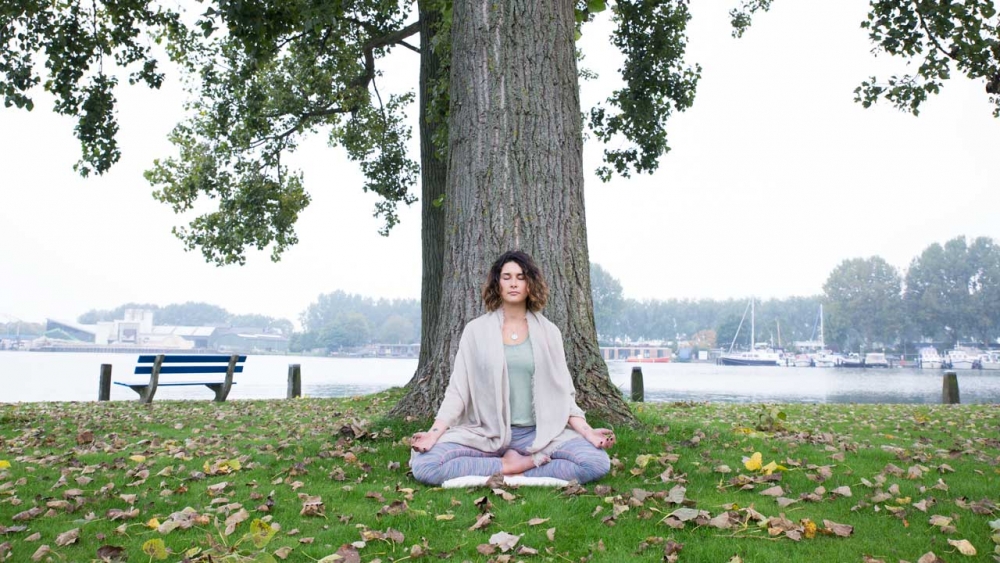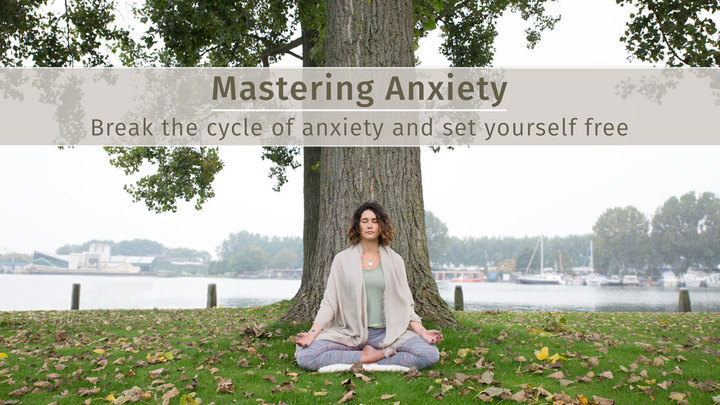If you have feelings of anxiety, then you are not alone. A recent study conducted by the Douglas Mental Health University Institute associated anxiety to our fast-paced 21st -century social living. Being alive in our modern age means a susceptibility, or even pre-disposition, to feeling anxious. You may have heard the turn of phrase ‘the age of anxiety’ – well, here we are, but what might we do about it?
When we look at the word anxiety, we find it has roots in a sense that something is wrong either in our mind’s past or supposition about a future outcome. The Oxford English Dictionary defines anxiety as a, “Strong desire or concern to do something or for something to happen”. We worry about a future outcome or something from our past. Whether it’s future or past tense (and we all know it can be quite tense!) there are some qualities that define anxiety:
- We have a feeling that something is wrong, and it is often exactly that: a feeling in our body – nausea, tension, ‘dis-ease’ – and commonly we feel it in the abdominal area (but not exclusively)
- We feel somewhat out of control, either of ourselves (how we acted or reacted) or of life (a circumstance that happened to us or might happen to us, that we’d hoped would go a different way)
So, we know that anxiety has a few common themes: it’s in the body as a feeling, it’s in the mind as a sense that something is wrong, and perhaps most importantly, it’s triggered by a sense of being out of control or a desire for life to be other than how it is.
To be human and to live in the stream of life means that we cannot be in control of all circumstances. Sometimes it seems we get to direct life whereas in other situations it seems life just happens to us. Despite fantasies about what yoga might be able to offer us, it’s unlikely you’ll ever get to play god and be in charge of every circumstance. But can yoga practices help us to return to a sense of being in control of our lives? Can they help us be ok when we feel out of control, and set us free from those anxious feelings?
But can yoga practices help us to return to a sense of being in control of our lives? Can they help us be ok when we feel out of control, and set us free from those anxious feelings?
Working with the body
One of the greatest gifts that modern movement-based yoga has given us is a way to use our body to influence our nervous system and take back some control over our natural responses to those parts of life that feel scary. We can use movement and breathing techniques to calm our central nervous system and bring about a feeling of ‘ok-ness’ or safety. Practices that lengthen the out-breath and help us feel grounded, secure, and calm really help. The practices I teach have an almost exclusive focus on this approach. Why? I’ll ask you another question that might answer it for you: do you meet many people who need more stimuli in their lives? There are of course those who do, but the vast majority of us need to learn to calm down, slow down and get grounded.
Working with the mind
Here’s the kicker though. You do some movement practice (notice I’m not calling it yoga practice, because practising yoga is so much more than moving your body) and how long does the effect last? Maybe a few hours? A day? Maybe until you switch your phone on after class? (Top tip – don’t switch your phone on straight after class!). So we get anxious, then we get back on the mat, and we get calm again, and then life makes us anxious again and so it goes. How might we break free from this repetitive cycle?
So we get anxious, then we get back on the mat, and we get calm again, and then life makes us anxious again and so it goes. How might we break free from this repetitive cycle?
Anxiety begins in the mind, as ultimately, it’s our mind that is perceiving threats and reacting to those perceptions or comparing present events to our memories of the past. If we keep just working with the body, it is either a short-term fix or a lot of commitment to keep getting back to square one. There is a smarter way…
Who’s in charge?
As we start to delve a little deeper into the teachings of yoga we can see that looking at or even adjusting our responses to certain situations can be helpful, and that perhaps avoiding certain others is a better strategy. We are starting to manage our stress, and therefore our lives. But what about the things that are unmanageable?
I’d like to ask you a question, one that might make you feel a little anxious. Are you as in control as you think you are? Can you control your mind completely? Can you control others? And when you try to, how does it work out for you?
Paradoxically, although it’s control that often triggers our sense of anxiety, when we’re able to let go of being in control of everything, we have the opportunity to catch a glimpse of a vast and unbroken freedom. You see this sometimes, perhaps in its ‘worse’ incarnation, when people become so broken by life that they lose the will to fight a certain circumstance. They surrender and let go – though sometimes it’s called ‘giving up’. For some, this leads to a new lease of life, but it’s a brutal way to change your relationship with control. Rather than having life knock down that wall for us, it might be more skillful to slowly take it down ourselves, one brick at a time. We could begin to slowly unravel through the art and practice of self-inquiry and meditation.
Learning to truly, openly listen to ourselves
As we take time to be with our perceptions, they reveal our underlying feelings and beliefs about circumstances and life. Perhaps we always feel unsafe, but through really listening to what this fear has to say rather than trying to get rid of it, or deny its power, we might discover it has little to do with the now and everything to do with when we were three years old. We might see that we’ve been telling ourselves a story all our lives. As we meet that frightened three-year-old self and greet them with kindness, love and deep heartfelt listening, we have the opportunity to resolve and dissolve the fear. It’s not through rejecting or even fixing our anxieties, but through understanding and love that we can begin to break free from the control they appear to have over us.
It’s not through rejecting or even fixing our anxieties, but through understanding and love that we can begin to break free from the control they appear to have over us.
Does the thought of that make you anxious?
(See what I did there?)
I observe time and again how frightened people are of themselves – of their inner worlds. In that way, we might get stuck on our mat, keeping up the calm-down-get anxious cycle, yet all the while we are still running from ourselves a little bit. If, however, you feel ready to break this cycle and turn around to take a deeper look, then there are some tools available to you.
The Mastering Anxiety program we have created for you on EkhartYoga is a way to take your first steps along this path. If you feel ready to not only discover how you can manage and control your physical anxiety effectively but also live a life where being out of control feels ok (or at least it feels ok not being ok!), then you could be really ready to live free from anxiety. Imagine that for a moment: being free of that feeling in your body and those thoughts in your mind. Tempting? Then come and join me, and set yourself free.
With love
James
Mastering Anxiety
Mastering Anxiety is a program of 8 classes of talks and practices available to all EkhartYoga members. Watch James’ video below to find out more and visit the program page to join. As with all our programs, it is available for you to follow any time you like.


